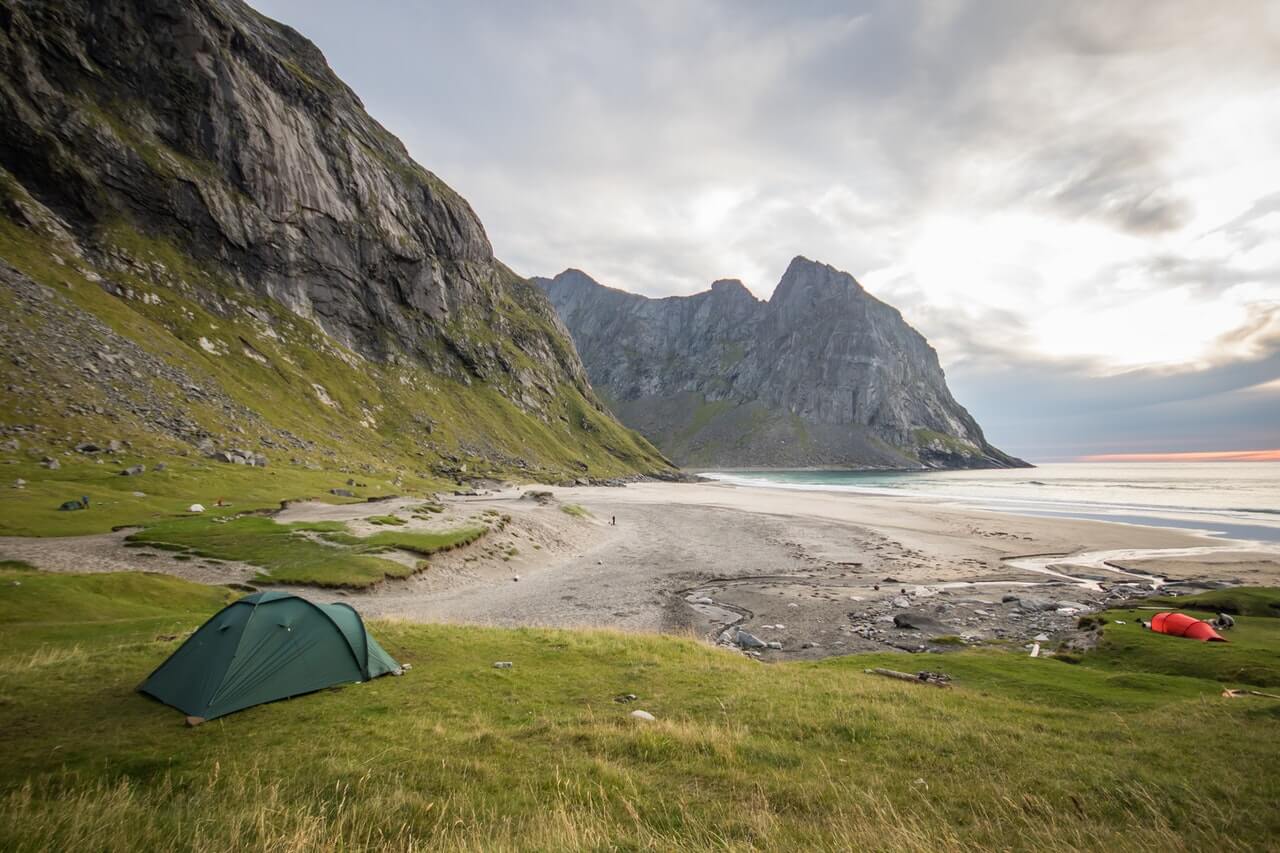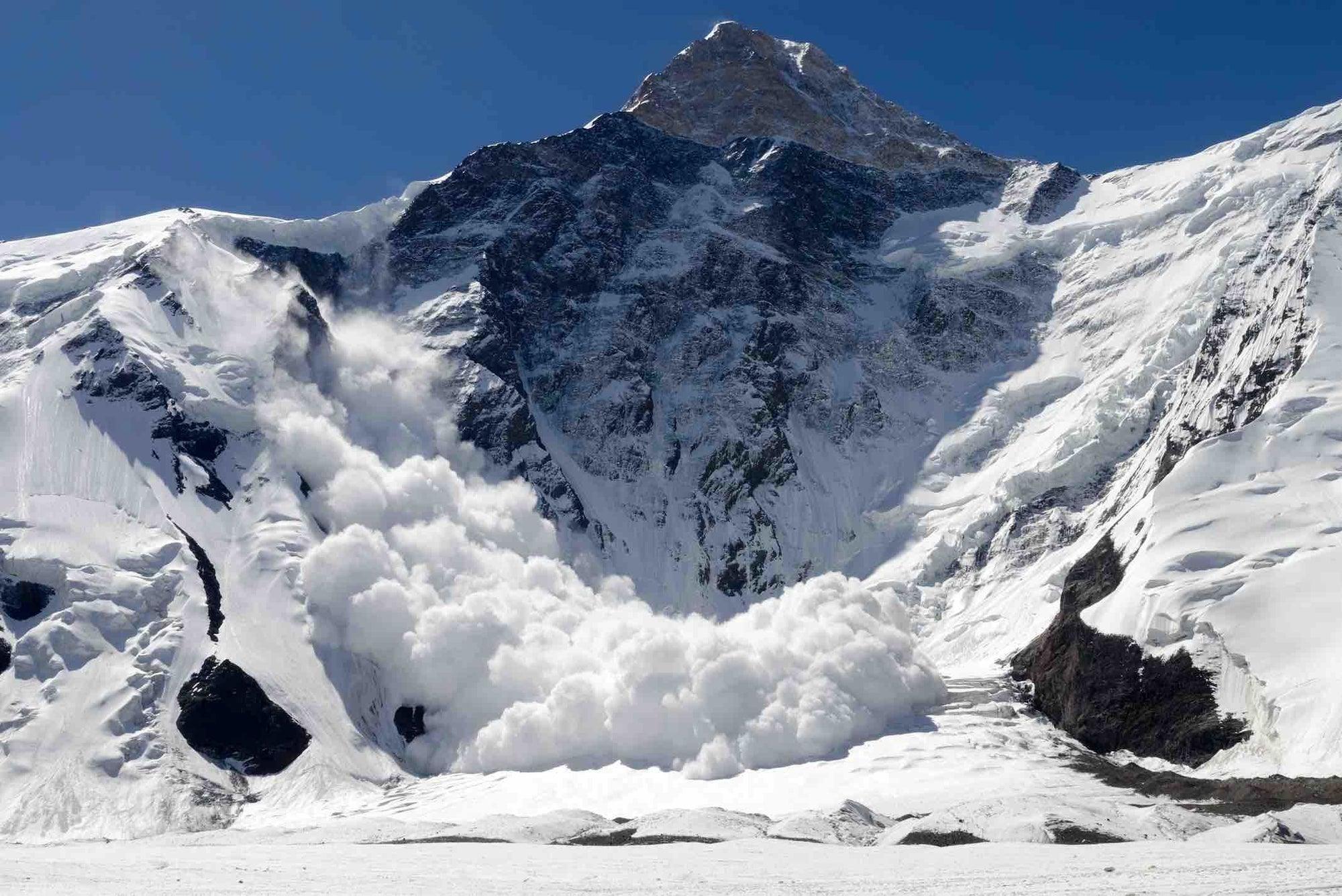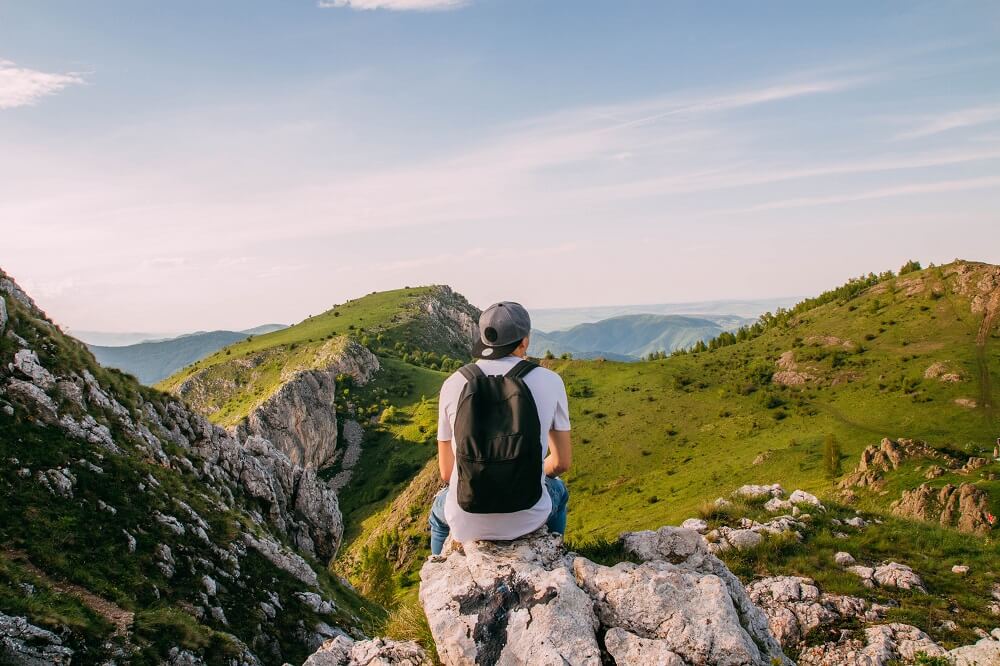Long treks sometimes have to camp in the wild, the complex outdoor environment, the higher the temperature difference between day and night, in order to sleep well, to protect their own safety camping must choose the right one for themselves.
Tent camping
Tent camping is the main way of camping for field trips, hiking expeditions and other outdoor activities, and it is also a way of camping worth actively advocating. The first feature is that it is the closest to nature, there is no way closer to nature than sleeping in a tent, think about the earth underneath you instead of what Simmons, wire beds and concrete, open the tent door is everything in nature, there is no concrete building to block your view, this is the real back to nature; second, it is a home that comes with the territory, as long as there is three square meters of flat land under your feet, you can set up a tent Enough for two people to live in the "home", and a lightest tent is only about 1 kg, as long as it has it beside, there is shade, shelter from the wind and rain house, but also to help escape the wind and snow, cold, etc., it is our intimate partner in wilderness travel, with it we can travel without fear; third is the economic way of camping, travel outside, the most Save the cost of accommodation is accommodation tent, can be calculated: a good tent should be in about $ 70 a (can live 3 people), the use of lovingly available at least 50 times (night) or more, then a per capita cost of only about $ 1, 1 yuan a night room is not very cheap, thus accommodation tent both cost-effective and health.

Accommodation cave
In the wilderness of most areas in the south, you can often see various forms of caves, dry caves, water caves, caves through the mountain, composite caves, etc.. Accommodation in caves is one of the most common ways of wilderness travel, and our ancestors started their new ground life from accommodation in caves, which is a good place for safety, convenience, warmth and shelter from wind and rain.
Ventilation: First of all, we should find out whether the cave is a ventilated cave, not a dead cave. It is very important to keep the air circulation, you can light a cigarette to check whether the cave is ventilated or not, as long as the smoke floats to the cave or outside the cave in one direction that means the cave is ventilated.
From the safety point of view, it is best to arrange the camp closer to the entrance of the cave, so as to facilitate the withdrawal and transfer of camp.
Water condition: When determining whether a cave can be accommodated, you should first find out the water condition of the cave. Most of the caves have flowing groundwater in activity, and some have complicated groundwater conditions, especially in the rainy season, so you should pay more attention to the chosen accommodation place, which should be dry and free of dripping water.
Other things to note in cave accommodation: many caves are inhabited by bats, swallows and other animals, so it is best to stay in the cave without disturbing them, or change the cave. If you are inexperienced in cave exploration, you should be less active in the cave, and single person activities should be prohibited; you can stay in the cave without setting up a tent, just laying various sleeping utensils, and if there are mosquitoes, you can burn smoke to drive them away.

Open-air camping
Open-air camping is a kind of exercise and test for our wild life, but also a rare life experience. In weather without rain, wind, snow and frost, you can try to camp in the open air without any shelter such as a tent. The main problem of sleeping in the open is to prevent dew and mosquitoes, so you can cover the sleeping bag with a layer of gauze netting to prevent mosquitoes and insects, or burn fireworks all night long to prevent frost and reduce dew. farmers do so to reduce frost. Of course, do not sleep in the open during the rainy season and winter. In addition, pay attention not to sleep in the water, grass and dense places, those places mosquitoes and insects, but also unsafe, at the same time, in the open air sleeping in the general temperature is about 5 degrees lower than the tent, so you should add more clothes to prevent getting cold.
The advantage of hammocks is that they will not be attacked by animals on the ground (such as snakes and other reptiles) and are suitable in some wet areas. There is a hammock type tent that has a rain canopy, and at the same time there are mosquitoes and gauze tents, very suitable for jungle camping.


